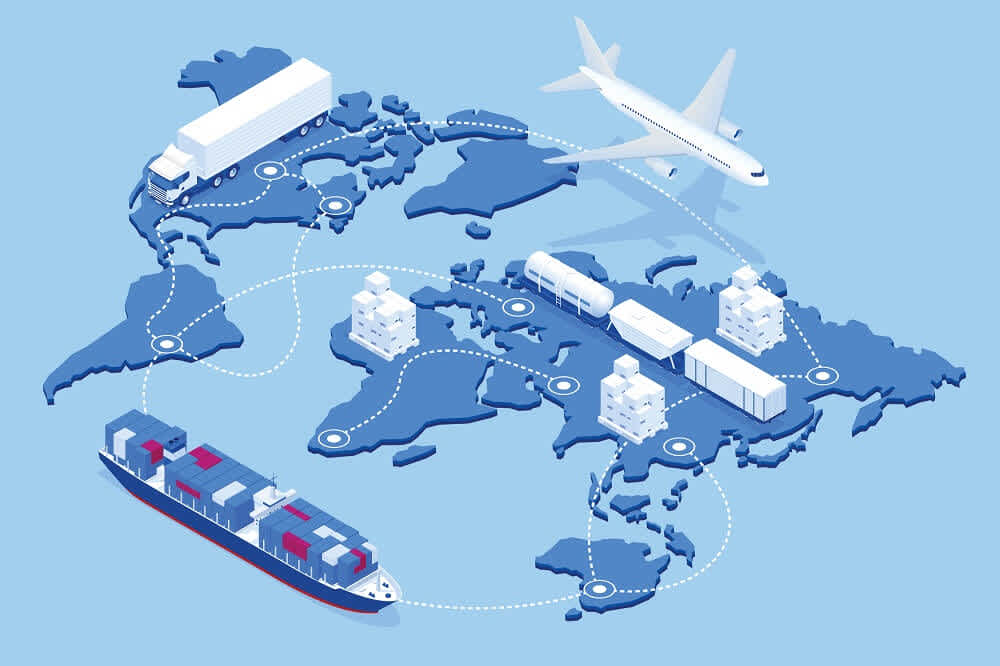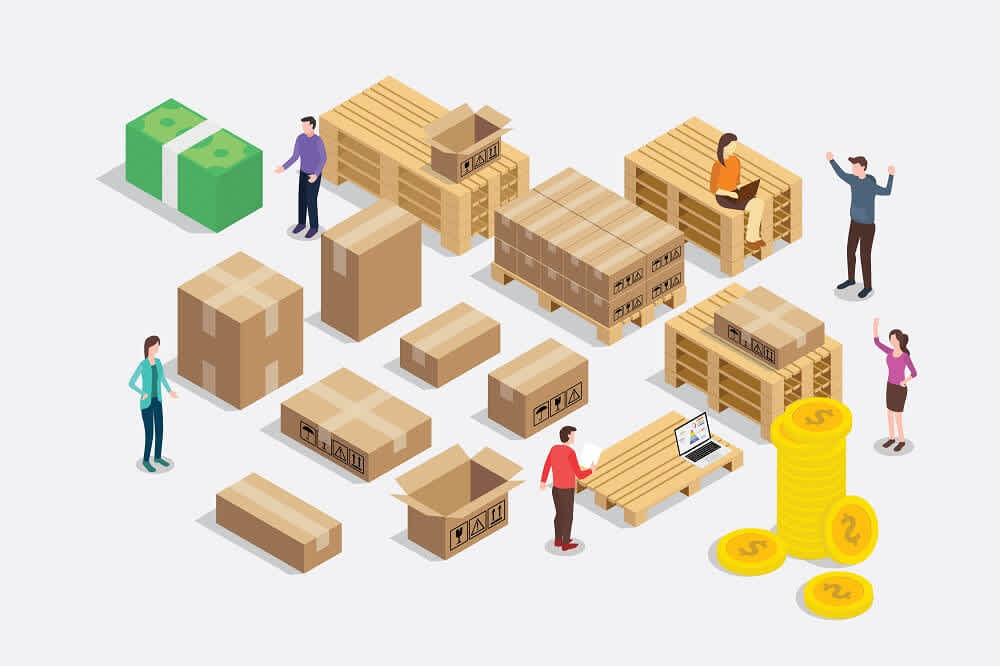
All you need to know about supply chain finance
If the pandemic has taught businesses anything, it is to be prepared for any kind of uncertainty. When Covid hit, supply chains were disrupted, and many businesses had to expedite payments to suppliers just so they could stay afloat, especially small and mid-size vendors.
Even when things are running smoothly, businesses need cash and a strong working capital management strategy to continue to grow and innovate. Businesses have traditionally fallen back on high credit periods or negotiating a longer time to pay creditors so that they can use available cash for short-term needs. In a perfect world, buyers want to pay as late as possible, and suppliers want to be paid quickly. But global economic turmoil has taught us there is a need to ensure supplier resilience, and quick access to working capital can save businesses. This is where supply chain finance comes in.

How does this work? In this article, we will talk about what supply chain finance is, why it is important for your business, how you can access it, why it is important for supply chain management, and its benefits.

Table of contents
- What is supply chain finance?
- Why is supply chain finance important?
- How is supply chain finance different from factoring?
- How does supply chain finance work?
- How do I apply for supply chain finance?
What is supply chain finance?
Supply chain finance is a financing solution that allows a buyer to use a third-party funder to pay their supplier early. This gives the buyer liquidity and allows them to pay back on their own payment terms. For the supplier, this means getting paid within days of submitting the invoice, in exchange for a small discount. It gives suppliers quick access to working capital at a low cost as the finance facility is based on the buyer's credit rating.
The third-party funder could be a bank or other financial institution. All it requires is a tech-enabled platform that the buyer, supplier, and funder all have access to.

What is the role of finance in supply chain management?
Supply chain management is a complex process. You have to create a fine balance between paying your suppliers without putting a big dent in your working capital and simultaneously meeting deadlines and customer needs. The pandemic made it even harder. It disrupted supply chains across the globe, obtaining financing from banks became difficult, and many companies had serious cash flow problems. Businesses started to realise the need to make supply chains more resilient.
Supply chain finance can be used to make supply chains stable as they help unlock working capital and shift the focus from making ends meet to improving efficiency and fueling innovation. It can also reduce the cost of capital across the supply chain. This can result in a lower overall cost of production and a more robust supply chain.

Why is supply chain finance important?
All businesses need financing for raw material, inventory, investment, or as working capital for daily operations. They need to have access to suitable financial instruments to manage their working capital needs. Supply chain finance provides an easy solution to improve working capital for both buyers and suppliers.
It especially boosts the prospects for small and mid-sized businesses that often don't have access to appropriate credit products from a traditional financial institution. The unique structure of supply chain finance means that suppliers to larger buyers receive faster payment because the finance facility is supported by the buyer’s business.
Is supply chain finance the same as trade finance?
Trade finance and supply chain finance are both solutions meant to finance supply chains. They have a close relationship in the sense that both facilitate easy trade across borders and domestically. Trade finance, however, offers a broader set of financial instruments.
Trade finance is relevant when a supplier wants to be prepaid, but the buyer wants to reduce risk and needs assurance that the goods will be shipped. The buyer’s bank or a financial institution provides letters of credit to the supplier or their bank. The letter of credit is a guarantee that the buyer’s bank will issue a payment to the supplier when they receive proof that the goods have been shipped.
The documentation is facilitated by banks, but the type of documentation needed may vary across different countries.
How is supply chain finance different from factoring?
As opposed to supply chain finance, invoice factoring involves selling your company's outstanding invoices to a third party at a discounted price for a quick cash infusion in order to improve your cash flow. It is a type of small business loan, and the factoring company collects payments directly from the customers.
Sometimes supply chain finance is also referred to as reverse factoring as it is a buyer-led financing option. In supply chain finance, the buyer assists the suppliers by financing their receivables.

What are the benefits of supply chain finance?
Supply chain finance is a win-win situation for everyone involved. Smaller businesses benefit because their larger buyers have higher credit scores, while the buyers can have extended payment terms.
Benefits for buyers:
Optimised working capital: Your company will benefit by extending payment terms and an improved cash conversion cycle. Supply chain finance also means access to low-cost liquidity without additional debt. For accounting purposes, buyers can classify it as an on-balance sheet arrangement rather than debt.
Lower supply chain risk: Companies can reduce the risk of supply chain disruption by supporting suppliers with affordable financing. It helps you create secure and sustainable supply chains.
Business growth: Supply chain finance will put you in a better position to accommodate any increase in your business. It will also help your suppliers keep up with any unexpected rise in demand.
Benefits for suppliers:
Working capital: Suppliers reduce their Days Sales Outstanding (DSO) and improve their working capital position by getting paid early.
Lower financing costs: Supply chain finance is based on the buyer's credit rating. It reduces the supplier’s cost of financing compared to other solutions. Suppliers have to pay a much higher interest rate if they get a loan or opt for factoring.
Better cash flow: This will help the supplier to grow and invest in innovation, which helps every player in the supply chain in the long run.
Forecasting future cash flow: Supply chain finance makes it easy for suppliers to accurately forecast future cash flow as the timing of payments is more reliable.
How does supply chain finance work?
The supply chain finance ecosystem includes three key players: buyers, suppliers, and financial institutions. All three have to be on a supply chain finance platform, and the buyer needs a good credit rating compared to the supplier. This ensures that they can access capital at a lower cost.
Here's how it works: Let's look at a scenario where a supplier submits an invoice to a buyer with a maturity of 90 or 120 days. The buyer approves the invoice and confirms it to the lender. Let's say the supplier needs an early payment for additional liquidity by day five or ten.
If they opt for supply chain finance, a bank or financial institution will pay the supplier at an earlier date and charge a small discount to the supplier. The buyer has to pay back the third party at maturity, which was day 90 or 120.
In other words: when a supplier sends an invoice to the buyer, the buyer approves it and initiates an early payment program funded by a financial institution. The seller gets paid immediately, minus a small discount. When the invoice reaches the end of its maturity period, the buyer pays the financial institution the value of the invoice.
This works well for both the buyer and the supplier. It helps the buyer optimise working capital and the supplier to generate additional operating cash by receiving the payment early.

What is the role of finance in supply chain management?
Supply chains are a complex ecosystem. For multinational companies with suppliers worldwide, capital needs to flow efficiently between buyers and suppliers. If it doesn't, the supply chain becomes costly and inefficient. This is especially relevant for global supply chains, which are susceptible to volatility and economic shifts around the world. High-performing supply chains have to be efficient and agile, and they need a flow of working capital. Companies that want long-term relationships with their supply base need to take care of their suppliers, especially when they are vulnerable. They need to ensure that suppliers don't fall short of funds.
Companies allocate a large portion of their resources to efficiently manage the physical supply chain, but they need to equally consider the financial supply chain.
How do investors benefit from supplier finance?
Supply chain finance presents a tremendous opportunity for banks and other investors. Apart from boosting their revenue by extending supply chain finance to their clients, it is also an opportunity to expand into adjacent products like dynamic discounting, which are picking up pace.
Supply chain finance can also be a source for new clients, especially in small and medium business sectors. The most important benefit for providers is that supply chain finance needs an online platform with data from thousands of buyers and suppliers. These datasets can be used to identify new client opportunities with the help of advanced analytics.
How do I apply for supply chain finance?
Your company should have been in business for more than two years and have sales of $10 million or more to apply for supply chain financing. The buyer and the supplier should also have a history of working together and a good transaction track record.

How to find the best supply chain finance solution?
There is a range of sophisticated supply chain finance solutions available today. You can opt for banks, fintech companies, or other financial institutions. A good provider should offer a robust end-to-end solution that can cater to different types of sellers and business requirements. It should also consider the needs of a business at different points of time, which means it should be able to offer functions like dynamic discounting or factoring if the business needs it.
Some institutions provide a multi-funder network or a diverse funding pool, which makes the pricing competitive and will insulate your business from the risk of loss of funding. A good solution should also simplify seller adoption, management, and support.
How much does supply chain finance cost?
The supplier is required to pay a small discount, while the buyer does not pay to extend the repayment period. The discount is calculated based on interest rates and the buyer's credit quality.